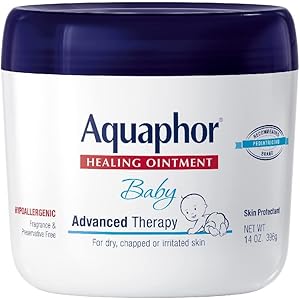Aquaphor Baby Healing Ointment Advanced Therapy Skin Protectant for Chapped or Dry Skin, Drool Rash and Diaper Rash Ointment, 14 Oz Jar
$17.99 (as of October 25, 2025 00:05 GMT +00:00 - More infoProduct prices and availability are accurate as of the date/time indicated and are subject to change. Any price and availability information displayed on [relevant Amazon Site(s), as applicable] at the time of purchase will apply to the purchase of this product.)Understanding Maternal Age
Maternal age refers to the age of a woman at the time of giving birth. It is a crucial factor in obstetrics, influencing both maternal and fetal health outcomes. As women age, various physiological changes occur, which can affect pregnancy and childbirth. Understanding the implications of maternal age is essential for healthcare providers and expectant mothers alike.
The Impact of Advanced Maternal Age
Advanced maternal age is typically defined as being 35 years or older at the time of delivery. This age group is associated with increased risks for certain complications, such as gestational diabetes, hypertension, and chromosomal abnormalities in the fetus, including Down syndrome. Healthcare providers often recommend additional screenings and monitoring for women in this category to ensure a healthy pregnancy.
Risks Associated with Younger Maternal Age
Conversely, younger maternal age, particularly those under 20, can also present unique challenges. Teen mothers may face higher rates of preterm birth, low birth weight, and complications during labor. Socioeconomic factors, educational attainment, and access to prenatal care can significantly influence outcomes for younger mothers, making it essential to provide adequate support and resources.
Maternal Age and Fertility
Maternal age plays a significant role in fertility. Women are born with a finite number of eggs, and as they age, both the quantity and quality of these eggs decline. This decline can lead to difficulties in conceiving and may increase the likelihood of miscarriage. Understanding the relationship between maternal age and fertility can help women make informed decisions about family planning.
Psychosocial Factors Related to Maternal Age
The psychosocial aspects of maternal age cannot be overlooked. Women who delay childbirth may do so for various reasons, including career aspirations, financial stability, or personal choice. These factors can contribute to a woman’s overall well-being and readiness for motherhood. Support systems, including family and community resources, play a vital role in helping women navigate the challenges of pregnancy at different ages.
Healthcare Recommendations for Different Maternal Ages
Healthcare providers often tailor their recommendations based on maternal age. For younger mothers, education about prenatal care and nutrition is crucial, while older mothers may require more frequent check-ups and specialized screenings. Understanding the specific needs of each age group can help ensure that all mothers receive the appropriate care throughout their pregnancy journey.
Maternal Age and Genetic Counseling
As maternal age increases, the importance of genetic counseling becomes more pronounced. Women over 35 are often encouraged to undergo genetic testing to assess the risk of chromosomal abnormalities. Genetic counselors can provide valuable information and support, helping families make informed decisions about their pregnancy options.
Societal Trends in Maternal Age
In recent years, there has been a noticeable trend toward later childbirth in many societies. Factors such as increased educational opportunities for women, career advancements, and changing societal norms contribute to this shift. Understanding these trends is essential for healthcare providers to address the unique needs of modern families and to adapt their practices accordingly.
Future Research on Maternal Age
Ongoing research into maternal age continues to shed light on its implications for pregnancy and childbirth. Studies are exploring the long-term effects of maternal age on both mothers and children, including health outcomes and developmental milestones. As our understanding evolves, healthcare practices will need to adapt to provide the best possible care for mothers of all ages.



